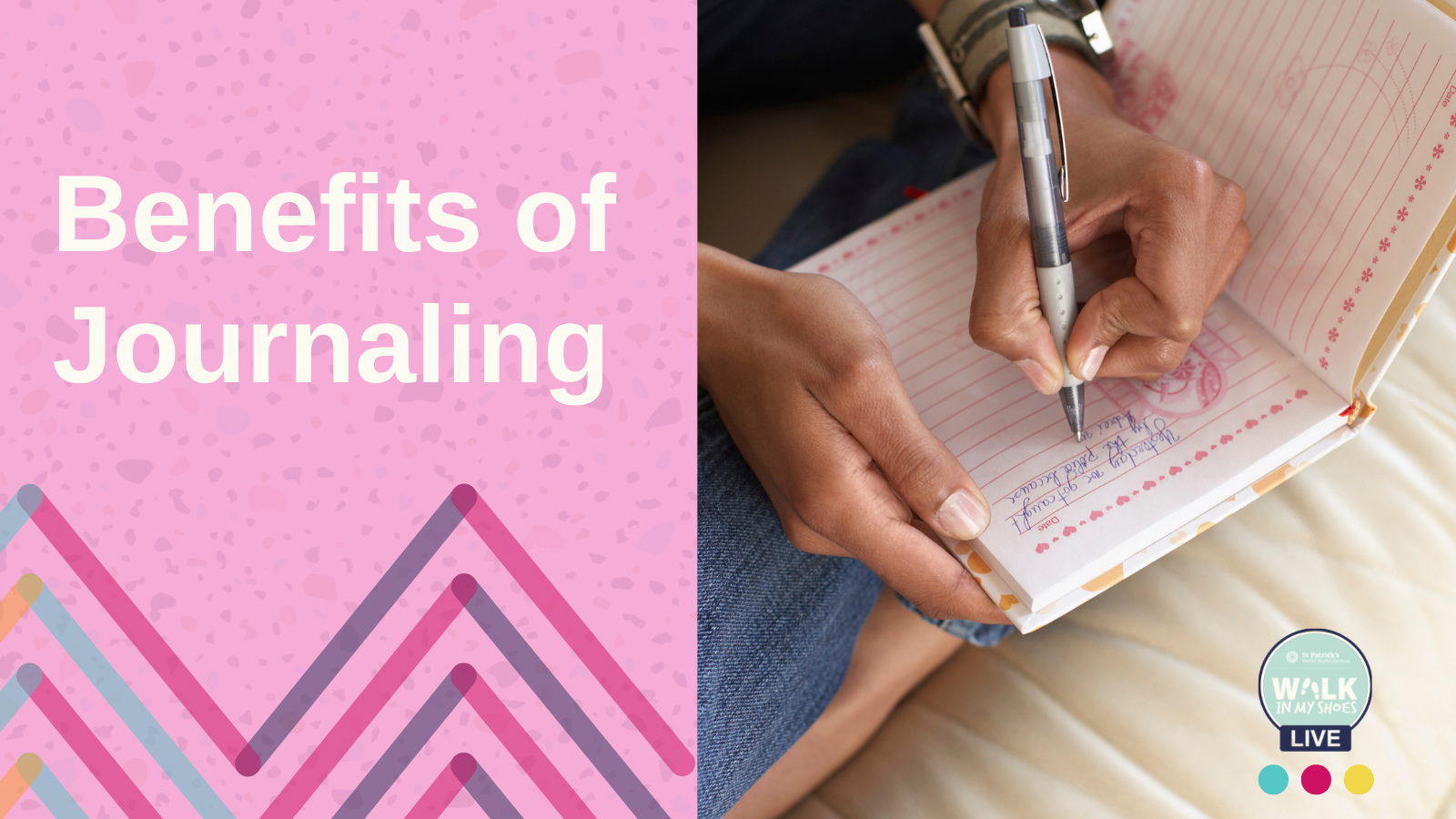
Journaling can help to stop us from bottling up our emotions and concerns. Learn more about how to practice journaling.
Dr Declan Lyons, Consultant Psychiatrist at St Patrick's Mental Health Services, describes the power of journaling and takes us through some tips to help us to practice journaling.
What is journaling?
Journaling is time-honored self-therapy. When we journal, we move our thoughts or observations on life onto paper for clarity or to release stressful emotions. It’s available 24/7, day and night: it reframes our sentiments, our bias and our judgments.
Journaling can prevent our emotional concerns from being bottled up. Bottling our emotions could potentially damage our physical and emotional wellbeing. Research from the University of Texas found that journaling has been shown to repair the immune system, demonstrating the real biological benefits of writing.
How does writing help?
Journaling helps to put things in perspective: we can shift from a more negative mindset to a more self-accepting mindset. Writing guides us to face emotions that we previously hid or restrained, helping us to process difficult events and composing a narrative about, or description of, our experiences. It makes us more self-aware of our unhealthy patterns and of our thoughts and behaviors that take control of our lives.
The left half of our brain is very rational; it is very active during journaling. The right half of the brain is the creative area and is given space to expand and flourish when we journal: this is cathartic and improves our sense of wellbeing. All of this means that journaling and writing can improve our communication skills, our creativity, and our self-confidence.
How can I start journaling?
• Try not to overthink. There are no rules to follow; ditch obsessions with spelling or grammar.
• Choose a topic or a theme for the week.
• Journal in multimedia: it doesn't have to be on the keyboard or in paper and pen, but could be through voice recordings, inking, or any other art medium.
Are there good techniques for journaling?
These steps can help build a good technique as we journal, so it’s not just a brain dump.
W – What do you want to write about? What’s going on; can you give it a name?
R – Review or reflect on it.
I – Investigate thoughts and feelings through writing. Refocus, read over and keep going.
T – Time yourself. You could choose to write for five minutes, 10 minutes or an unlimited time.
E – Exit strategically, reflect and sum up. Use takeaway sentences such as “As I read this, I notice/I’m aware of/I feel…”
Some more journaling tips you might find helpful include to:
- Write in private, free from distraction
- Aim for three to four sessions per week
- Reflect and ground yourself after writing
- Structure it as you wish, without any obligation to write about anything (such as a traumatic event)
- Keep the writing private.
A regular life audit on paper, when we can ask ourselves “how am I doing?”, can be helpful too. Some steps include:
- Deciding which areas of your life might need an audit: is it your health, your relationships, your passions, your hobbies, your spirituality?
- Writing down questions to ask yourself, like “am I happy’?” or “am I using my full potential?”, and trying to answer them honestly
- Creating a practical plan to address any issues; remember, analysing your goals could take an hour, but they could take more time to achieve, so be realistic in this exercise.
How is journaling related to self-care?
Journaling can be a type of self-care. All this can seem a bit self-indulgent, maybe a bit selfish. It’s not: it's the practice of taking an active role in protecting your wellbeing or happiness during periods of stress. What is selfish about that?
Self-care takes practice. After all, if you want to be a light for others, you have to glow yourself.
Watch our video on the power of journaling
Get more wellbeing resources
More journaling resources
Expressive Writing: Words that Heal by James W. Pennebaker
The Benefits of Journaling for Stress Management by Elizabeth Scott
Trigg Life Mapper
The 6 Minute Diary
What’s All This About Journaling? from the New York Times



